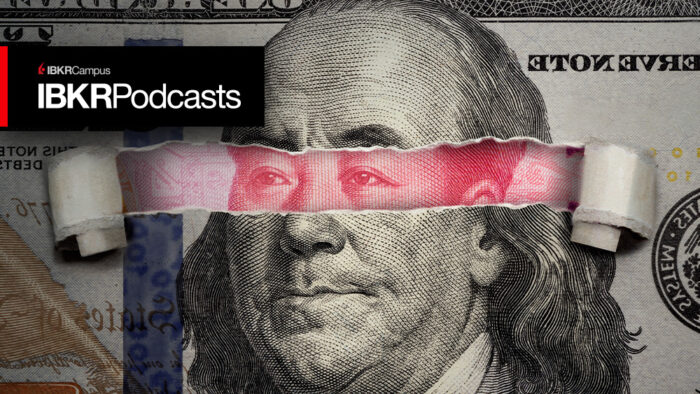Markets are reacting positively to yesterday’s interest rate decision by the Fed which was followed by a dovish press conference from Chair Powell. Perhaps equities and bonds alike picked up the telephone to call for help in the days prior to the event. Similar to other recent presentations, Powell came to the rescue, delivering a message of “peak fed funds” while lightening up the central bank’s balance sheet reduction plans materially. The sympathetic approach, amidst an excessive amount of patience and countless references to the phrase “over time”, occurs as the economy has failed to offer just one month of inflation consistent with the Fed’s 2 percent target on an annualized basis so far this year. Against the backdrop, employment and wage growth have been accelerating, confounding market participants of the need to take a hike off the table.

Failure To Accept December’s Policy Mistake
When we revisit the critical turning point concerning monetary policy late last year, we recall the dots pointing to rate cuts right around the corner. The effect served to dramatically loosen financial conditions which traders often associate with soaring stocks, plunging yields and a cratering greenback. Powell must have forgotten his speeches in 2022 when he continuously reminded everyone that declaring an early victory was a grave mistake that haunted former Fed Chair Arthur Burns in the 1970s. The outcome today, similar to the 1970s in direction, but not magnitude, is an inflation level and rate that are frankly unacceptable when considering the institution’s own mandates. What helped the Fed declare victory last year, goods and commodity prices declining, in part due to tighter monetary policy, are the same forces going the other way today. If manufacturing and real estate recessions alongside plunging oil prices couldn’t get us to 2% last year, do we really think that the recovery in both sectors will get us there this year?
We’re Not in a Restrictive Environment
While the fed funds rate is significantly above the pace of inflation, let’s remember that monetary policy has become much more than just a number. When we consider how powerful Fed messaging is, the speed at which the central bank comes to the rescue when volatility hits, the expansive bond-buying program, the bank reserve situation, etc., current policymakers make the mistake of overly focusing on one figure. Financial conditions as a whole are quite loose and will continue to relax further considering the lack of policy restraint from both fiscal and monetary authorities. In addition, the current economy isn’t as rate sensitive as it once was, especially considering that folks and corporates loaded up on goods and equipment during the pandemic while most homeowners refinanced their mortgages at 2-3%. Historically, the pressure from higher rates would slow manufacturing and real estate activity, then spread to the overall economy, but the splurging on goods during the pandemic combined with locked in homeowners have significantly diluted that effect.


A Common Problem in Washington
Gone are the days of many of my economist peers pointing to shorter-term (2,3,6 month) annualized inflation rates of 2% as a justification to begin rate reductions. Now that annualized rates are closer to 4%, rather than 2%, there’s now a desire to twiddle thumbs. Powell referenced “over time” several moments during his presentation, which stands in stark contrast to the budget constraints lower- and middle-class families are having to endure. Households are looking for relief, and while central bankers don’t like deflation and its recessionary implications, implicitly accepting loftier inflation targets is not an adequate societal solution. Attempting to arrive at 2% sooner rather than later, would be meeting in the middle, considering the central bank’s past errors have pushed prices up over 20% since February 2020, the pre-pandemic level. “Over time” isn’t a responsible proposition, considering Powell may or may not be at the helm when his term expires two years from now. Yeah, who cares, let someone else deal with it, that’s what Washington has become. The current Fed believes it’s much better, to implicitly accept a higher inflation target then suffer the real consequences of falling asleep at the wheel in 2021, which would push the nation into a downturn. However, in reality, making the tough choices today protects the world from even tougher choices later.


Inflation Put
To be fair, it’s not just the Fed that’s between a rock and a hard place. Central banks around the world are confronting very similar tradeoffs which weigh costs and benefits against the backdrop of financial markets that want lighter rates but households that crave lower prices. Stocks stand to benefit greatly in this environment, considering they’re nominally priced assets that are supported by rising prices. I’ve coined the term “Inflation Put” as the newly born inflationary support that rising prices offer stocks. Indeed, if we look at earnings per share on a 12-month forward basis, we can see the different levels that we arrive at over a decade when accepting 2%, 3% or 4% inflation. The assumption is that all else equal, earnings per share will generally grow by at least the level of inflation over time. Starting with forward earnings of $250 today, the three outcomes land us at $305, $337 and $373. The idea here is not to forecast earnings 10 years out, but rather to point out the tailwinds of taller price pressure objectives. Monetary policy patience is great for equities.


Visit Traders’ Academy to Learn More About Monetary Policy and Economic Indicators
Disclosure: Interactive Brokers
Information posted on IBKR Campus that is provided by third-parties does NOT constitute a recommendation that you should contract for the services of that third party. Third-party participants who contribute to IBKR Campus are independent of Interactive Brokers and Interactive Brokers does not make any representations or warranties concerning the services offered, their past or future performance, or the accuracy of the information provided by the third party. Past performance is no guarantee of future results.
This material is from IBKR Macroeconomics and is being posted with its permission. The views expressed in this material are solely those of the author and/or IBKR Macroeconomics and Interactive Brokers is not endorsing or recommending any investment or trading discussed in the material. This material is not and should not be construed as an offer to buy or sell any security. It should not be construed as research or investment advice or a recommendation to buy, sell or hold any security or commodity. This material does not and is not intended to take into account the particular financial conditions, investment objectives or requirements of individual customers. Before acting on this material, you should consider whether it is suitable for your particular circumstances and, as necessary, seek professional advice.































Join The Conversation
If you have a general question, it may already be covered in our FAQs. If you have an account-specific question or concern, please reach out to Client Services.